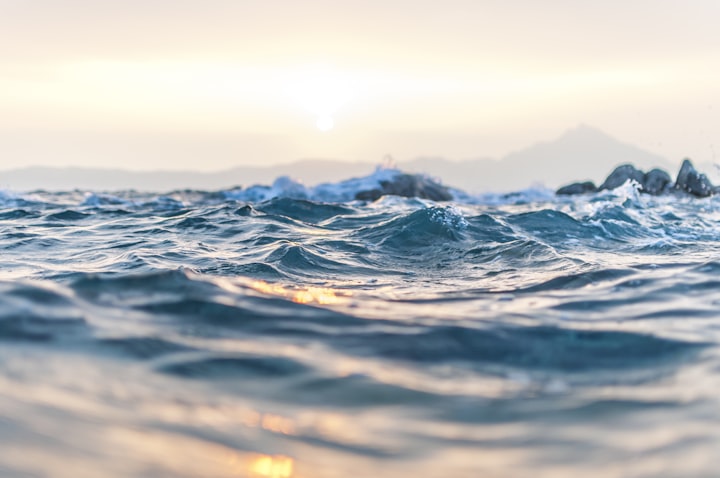Io: the "super reservoir" of the solar system
The Earth's water volume may be less than a fraction of its size

Planets in our solar system that have water will always be of interest to astronomers, such as Io.
It has a younger brother, Io, which also has huge amounts of water on it, perhaps not even as much as Earth.
Although Io is the younger brother of Io in terms of distance from Jupiter, Io is larger than Io.
Moreover, Io is the only moon in the solar system with a magnetic field, which makes its identity instantly mysterious.
It is the largest of all the moons in our solar system, larger than even Mercury as a planet.
However, Io is not as massive as Mercury because while Mercury is a solid rock planet, Io's main composition is silicates and ice, and combined, it is not as heavy as Mercury.
Mercury still retains the last dignity of a planet.
In addition to its size, Io is also amazing in that it has a magnetic field, which is unique among the moons, although it is not as large as a planet like Earth.
Io's surface is covered with ice, just like its second brother, Io, by observation.
However, astronomers believe that underneath Io's ice, there is a high probability of oceans.
Io's surface contains ice and carbonates, and its core is most likely iron and also has some energy.
This situation can be referred to as the Earth, whose magnetic field comes from the Earth's core, and the most abundant substances in the core are iron, cobalt, and nickel, which are the main components of magnets.
The core of Io is a large magnet and these iron substances are likely in a fluid stat so Io's core is probably hot.
This would heat Io's ice, allowing liquid water to appear close to the core, and astronomers speculate that Io's structure from the inside out is: a core, rock layer, ocean, and ice cap.
This structure is similar to that of Io, and if this is the case, then Earth would not be the only planet in the solar system with liquid water.
In 2015, the Hubble Telescope photographed the appearance of auroras on Io, and by measurement, the water beneath Io's ice cap should be salty and can be identified as a subglacial ocean.
This ocean is more than 10 km deep and is hidden under Io's 150 km thick ice cap.
Adding up all this liquid and solid water, I'm afraid that Earth has less than a fraction of Io's water.
It turns out that it is the largest reservoir of water in the solar system, the largest "Mercury".
In 2021, the probe photographed water vapor emitting from the surface of Io, confirming the speculation that there is liquid water under Io's ice.
Given the presence of liquid water, could there be life on Io?
Astronomers believe that the water vapor ejected from the surface of Io is most likely a volcano erupting from the ocean floor, which indicates that its core is releasing energy.
Water, and volcanic eruptions, are two important conditions during the birth of life on the early Earth.
However, the depth of the early Earth's oceans was not as great as Io's, not to mention that it had a 150 km thick "crust", which is thicker than the Earth's crust, so the pressure on Io's oceans was enormous.
With such tremendous pressure, likely, the life born on Io is not as important as the life forms we imagine.
Combined with the fact that Io's main component is also silicate, this not only leads to speculation that the form of life on Io is, perhaps, silicon-based life.
Since carbon atoms can form carbon chains to form organic matter, silicon atoms can also form silicon chains to form another kind of matter.
Only in the Earth's environment, silicon-based life does not exist, but according to the conditions of other celestial bodies, silicon-based forms of life are possible.
So, is it possible that life on Io is as carbon-based as life on Earth?
The condition for carbon-based life is that it requires carbon-containing materials such as methane, carbon dioxide, or other alkanes.
However, this is exactly what Io lacks. Io's atmosphere is so thin that it can be almost non-existent, and its atmosphere is mainly composed of oxygen.
Unlike Titan, which is full of methane, there is no significant amount of carbon-containing organic matter detected on Io, and even carbon dioxide is rare.
Of course, this does not exclude that volcanoes at the bottom of Io's oceans erupt carbonaceous material, because the ice cap is so thick that it is likely that carbonaceous material is underneath the ice and is not detected.
It has also been suggested that Io has a magnetic field and that it may have been a candidate planet in its early days, but was just unfortunately too close to Jupiter and was captured by it to become its moon.
Before it became a moon, life already existed on it, but the evolutionary path was not the same as that of life on Earth.
As to whether there is life on Io, like the mystery of life on Io, a deeper exploration is needed to find out.
As the reservoir of the solar system, Earthlings are naturally very envious of Io's water resources, after all, water scarcity is a problem that humans on Earth need to face today.
In the case of depleted water resources on Earth, bringing Io's water resources to Earth seems to solve the pressing problem, but this distance is too far.
The distance from Jupiter to Earth is 390 to 630 million kilometers, and it took Juno five years to reach an orbit near Jupiter, and as its third moon, Io is not much closer to Earth.
Just a sip of water takes 5 years of navigation time, and the cost of this water is too high.
Therefore, it is believed that the role of Io, is perhaps better used to immigrate. But the premise of immigration is to ignite Jupiter.
Jupiter is thought to be a small star that failed to evolve, and it is a gaseous planet with hydrogen and helium as its main components, which is the same composition as most stars.
The energy source of the star comes from the fusion reaction of hydrogen atoms, but this reaction is not done by hydrogen atoms coming together; it requires conditions to trigger it.
Unfortunately, Jupiter failed to ignite on its own, which eventually led it to become a cold planet.
If Jupiter had been successfully ignited, then Jupiter would have become a star, its moons would have automatically upgraded to planets, and Io's ice would have melted, eventually revealing its oceans.
Then at this time, if humans land on Io, it will be like coming to a shrunken Earth.
However, Jupiter differs from the Sun, not only in the step of ignition, the temperature and pressure of Jupiter's core do not meet the criteria for ignition.
Knowing that it failed to ignite by itself, how could humans change its planetary identity?
Similar to the case of Io, Io is supposed to be the most attractive moon for humans, except for the Moon.
Its surface is covered with ice and there are huge oceans beneath it.
o as a whole has a mild feel, and it has some orange streaks on its ice, which are caused by cracks in its ice and material spewing up from beneath the ice and coloring the surface.
The position of these streaks is subject to change.
It has also been found to have water vapor ejected from its surface, suggesting a liquid ocean beneath its ice.
It is smaller than Io and does not contain as much water as Io but is still larger than Earth.
In 2013, NASA also found traces of clay on Io, suggesting that the likelihood of Io containing life has been raised.
Like Io, Io's core is also full of energy, but its mass is too small to generate a magnetic field.
Its atmosphere is also thin and composed of oxygen, which is produced by the electrolysis of water. There should have been hydrogen, but the small mass escaped directly to space.
Io and Io are two adjacent moons that are surprisingly similar, and both are in the orbit of Jupiter, so one has to wonder about the magic of Jupiter.
The study of Jupiter can understand the fierce competition for planets at the beginning of the solar system, the eight planets can laugh to the end, and all have their own two brushes.
The Earth can breed life, but also has a brush.
Human exploration of the solar system is too little, waiting for us to answer the question there are many.
"Super reservoir" Io, will continue to orbit around Jupiter, perhaps one day, the human probe deep into its ice, to see a different underwater world.
About the Creator
Bettye Lutz
Ascent must be inferior, self-esteem is too high can not achieve success, and therefore successful people must cultivate a calm mind, and focus on everything, which is the key to success. I like vocal music






Comments
There are no comments for this story
Be the first to respond and start the conversation.